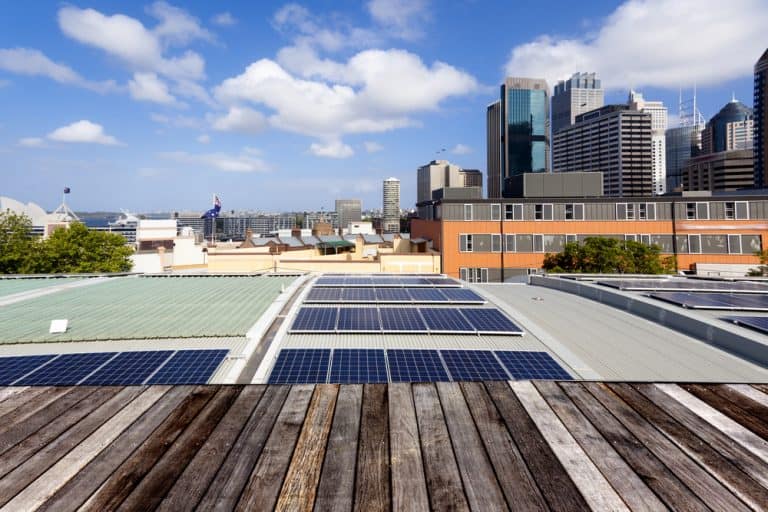Nevada Solar: Why Commercial Solar is Different

Nevada Commercial solar is different than residential and these distinctions are imperative. You will need to look at the different factors to see if it is a viable option for your business. It’d be a mistake to learn about rooftop solar in Reno or Las Vegas and assume those same principles apply to commercial solar as well.
When Does Nevada Commercial Solar Make Sense?
There are two main factors that play a large part in whether solar is going to be a good option for your Nevada business. The first is owning your building. The second is having a steady cash flow.
Owning Your Building
For small business owners, buying your building may not be a good option. This is especially true if you don’t foresee your company staying in that building long-term.
If you don’t own the building that your business operates in, solar may not be a good option for you. This is because only the owner of the property can purchase solar in a way that benefits the bottom line of the business.
If you don’t own your building, you might be able to get your landlord to consider buying solar. But, it is in your best interest to wait until you own your building.
Steady Cash Flow
The net change in your company’s cash position will change from one period to the next. The goal is to have more cash inflow than outflow. Steady positive cash flow is essential for a commercial solar installation.
Reno NV commercial solar systems are an investment and most don’t have the cash to pay for it up-front. This means that some sort of financing involvement is necessary.
If your debt to income ratio is higher than 100%, your business may be too dependent on debt. A high debt to income ratio will make it hard to get your business financed for a photovoltaic system.
Nevada Solar Tax Credit For Businesses
Companies with commercial solar are able to get a 100% write off for their first year of solar expenses. You are able to claim this write-off through the MACRS bonus depreciation expense.
This is great news for those interested in solar, but you will want to make sure you qualify. First and foremost, you need to own the property you are getting solar for. Nonprofits, schools, and churches don’t qualify because they don’t have a tax liability.
Reducing Your Commercial Power Bill
There are quite a few things that go into designing a system so you can offset your power bill. One of the major components is an inverter. You can have quality panels and a subpar inverter and your system will under-produce.
Inverters convert direct current from your panels into alternating current in your business. Getting a quality inverter will ensure that you are getting the most out of your panels.
You can either oversize or undersize your inverters. The AC power rating to the panel’s DC capacity ratio will determine the type of production you can expect.
Inverter clipping may occur if your inverter has a lower capacity than your panels. Inverter clipping is when the inverter cuts off the excess power above its rating.
If your inverter has a larger capacity than your panels, you may not produce what the inverter can handle. Go Solar Group uses HiQ 5 kW Solar Edge and SMA Sunny boy inverters on commercial installs, depending on your situation.



Send a Message
Oops! We could not locate your form.